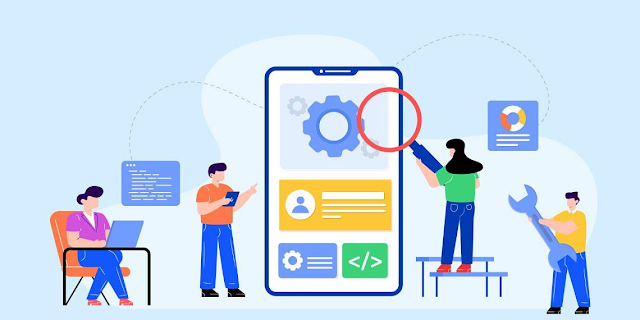Top 5 Trends in Mobile App Testing Services
In today's digital age, mobile applications play a pivotal role in our daily lives, from communication and entertainment to productivity and commerce. As the demand for mobile apps continues to rise, so does the need for rigorous testing to ensure their functionality, performance, and security.
In this blog post, we'll delve into the top five trends shaping the landscape of mobile app testing services.
5 Latest Trends in Mobile App Testing Services in 2024
AI and Machine Learning-Powered Testing: The integration of artificial intelligence (AI) and machine learning (ML) technologies is revolutionizing mobile app testing. AI-powered testing tools can analyze vast amounts of data, identify patterns, and predict potential issues more effectively than traditional testing methods. Machine learning algorithms can also optimize test cases, prioritize testing efforts, and adapt to changing user behaviors, leading to more efficient and accurate testing processes.
Automation Testing for Continuous Integration and Delivery (CI/CD): With the adoption of CI/CD practices in mobile app development, automation testing services has become indispensable for ensuring the quality of frequent app updates and releases. Automation testing tools enable developers to automate repetitive test cases, run tests across multiple devices and platforms, and integrate testing seamlessly into the CI/CD pipeline. This accelerates the testing process, improves test coverage, and enhances overall software quality.
Mobile Device Cloud Testing: The proliferation of mobile devices with varying screen sizes, operating systems, and hardware configurations poses a significant challenge for mobile app testing. Mobile device cloud testing services offer a solution by providing a vast library of real devices hosted in the cloud. Developers can access these devices remotely to test their apps on different platforms and configurations, ensuring compatibility and consistency across devices.
Security Testing for Mobile Apps: With the increasing prevalence of cyber threats and data breaches, security testing has become a critical aspect of mobile app development. Security testing services help identify vulnerabilities, such as insecure data storage, insufficient encryption, and unauthorized access, before they can be exploited by malicious actors. By conducting comprehensive security testing, organizations can protect user data, preserve brand reputation, and comply with regulatory requirements.
User Experience (UX) Testing: In today's competitive app market, delivering an exceptional user experience is paramount for success. UX testing services focus on evaluating the usability, accessibility, and intuitiveness of mobile apps from the perspective of end-users. Through usability testing, A/B testing, and user feedback analysis, organizations can identify usability issues, optimize user interfaces, and enhance overall user satisfaction and retention.
Conclusion:
In conclusion, the landscape of mobile app testing services is evolving rapidly to meet the demands of an increasingly complex and dynamic digital ecosystem. By embracing trends such as AI-powered testing, automation testing for CI/CD, mobile device cloud testing, security testing, and UX testing, organizations can ensure the quality, reliability, and security of their mobile applications, ultimately delivering superior user experiences and driving business success.
Also Read: Exploring the Benefits of Golang Development Services




Comments
Post a Comment